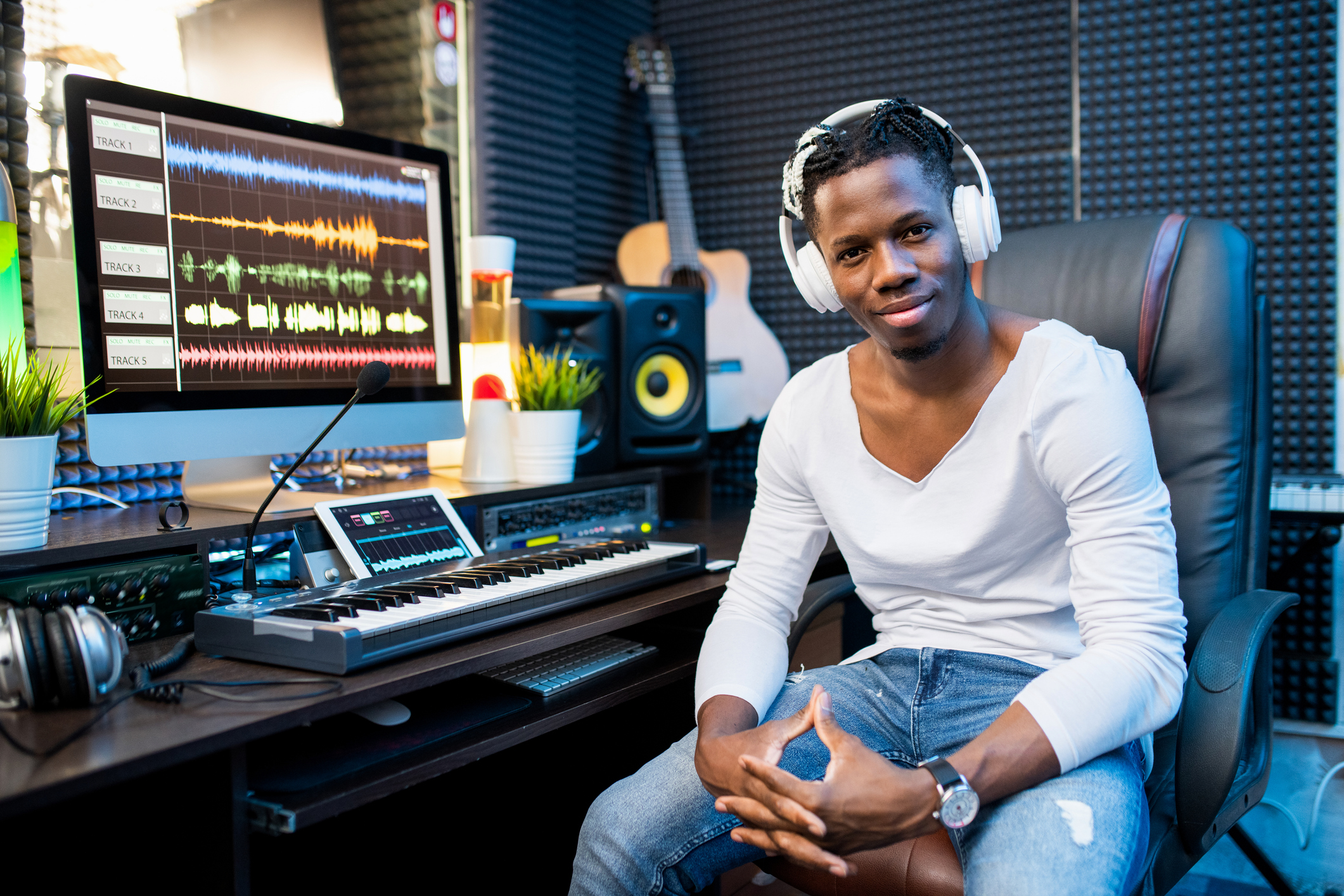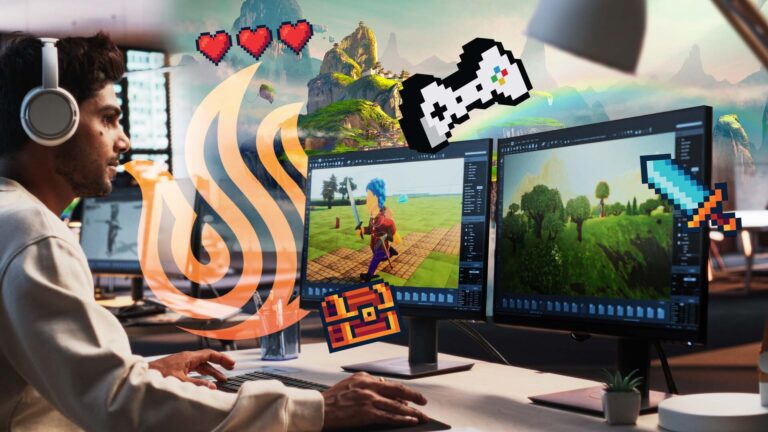Interested in becoming a music software developer? Enjoy both music and coding? Music software developer is a career path that could be well-tailored to those that have a passion for music but also have a background in areas like coding.

What is a Music Software Developer?
A music software developer has their hands in a few different areas. They work on developing plug-ins for effects, creating sample libraries or improving upon existing digital recording platforms. Another area of expertise is working on applications utilized for integrating music/sound into existing video or animation. This can be anything from online content and commercials to usage for television, film or video games. Not only will a music software developer need to create these things, but they will also have to test and adjust them in order to make sure that they work seamlessly across a variety of platforms.
Exactly What Does a Music Software Developer Do?
A music software developer writes the code and develops the software that creates the ability for music to interact within the modern world. This includes software for effects plug-ins, interfaces for integrating analog instrumentation into the digital fold, and notational/compositional tools.
A music software developer may also work with the apps and streaming services (Spotify, Amazon Music, Pandora, Apple Music, Google Play, etc.) that consumers utilize in the 21st century to enjoy commercial music.
What is the Day-to-Day Like?
The day-to-day of a music-centric software developer includes working with other software developers. The team will work through and implement the various phases of the Software Development Lifecycle. This process will be vital to working as a music software developer. The SDLC exists to provide a systematic framework for the development of software that ensures its quality. There are seven phases to this lifecycle as follows:
- Requirement Collection/Analysis
- Study of Feasibility
- Design
- Coding
- Testing
- Installation/Deployment
- Maintenance
Requirement Collection/Analysis: This is where the basic need for the software is determined along with establishing timelines and requirements for its creation.
Study of Feasibility: This phase decides whether the project is feasible given a set of qualifiers. These include if the project can be completed within budget, if creating it is legally/ethically sound, whether the operations expected by the client can be made, the capability of current operating systems to support this new software and also if the project can be done within the time-frame allotted.
Design: In this phase, design documents are prepared to set up an overall structural plot for development. There are two types of design: high-level design and low-level design. In high-level design, the focus is on describing/naming each module, how the modules function, the relationships and dependencies between the various modules and the completion of technological diagrams. With low-level design, a music software developer will concern themselves with dependency issues that come up, the logical functionality of the modules, and so forth.
Coding: Here is where a great deal of the work time will be spent. This is the time used by the developers to write the system by coding in a programming language.
Testing: During this phase the team tests out the functionality of every part of the system to see if it is consumer ready.
Installation/Deployment: After the system has been thoroughly tested and all issues are resolved, its delivery mechanism is set-up (how a consumer will implement and interact with it).
Maintenance: At this point, the system will be delivered initially to a small group of consumers to find and resolve any bugs and errors that were missed during development. These issues get addressed before ultimately releasing the software for full public use.
The day of a music software developer is immersed in processes to achieve a seamless result. The key to the daily life of a music software developer is to hunker down and really immerse themselves into a project. Being able to find enjoyment and fulfillment in small victories will be a good quality for a music software developer to possess. Having a penchant for solving daily problems in service of ultimately creating something larger of quality is a cornerstone of the work of a music software developer.
What is the market like for this position?
According to NAMM (North American Music Merchants), known for their two major yearly U.S. music conferences in Nashville and Anaheim, music software development is poised for tremendous growth over the next 10 years. Music downloaded or streamed is being consumed at an ever-staggering rate and the rise of home-recorded music shows no signs of waning. The current methods of consumer streaming and home-recording plug-ins will need consistent improvement, refinement and expansion. Music software developers will need to be there to meet the demand.
According to the NAMM report, there were 2 trillion songs downloaded in 2015. Just five years before, that number was only around 100 million. We are currently at a point where it is hard to find someone that does not get at least some of the music that they listen to from one of the most popular streaming apps. Music software developers will continue to be at the forefront of improving these apps for a better and easier consumer experience.
On the home-recording front, the ubiquity of a wide array of plug-ins, loops, sequencers, virtual synths, and other software-based technology have made the barriers-to-entry in making quality recorded music for little to no money (compared to recording in a fancy recording studio) nearly non-existent. Just because a record was not recorded in a fancy professional recording studio, does not mean that the home recorder does not want their recordings to sound like it was. This has created a large market in studio emulation software where digital software facsimiles are created of classic recording hardware. This can include recreations of anything from instrument/amplifier configurations, studio effects like coveted compressors and reverb units and even virtual mixing boards that emulate heralded ones from the ’70s and ’80s.
Almost all music created these days, whether it is completely electronic-based and laptop-composed or acoustic folk, has some aspect of digital creation. That means nearly all music now requires software of some sort. That puts music software developers into high demand and that demand will only increase in the coming years
What You Need to Learn to Get Started
To be ready to embark on a career in music software development, one must first have a solid understanding of what goes into desktop audio production. This will give a full-scope comprehension of the many components that go into putting an audio project together and all the ways that software development comes into play. It will also be vital to have a strong foundation in how music is synced up with video and other content.
Taking the time to learn the various phases of the Software Development Lifecycle that were described earlier and how to work all of them will give a hopeful music software developer a major leg up in preparation for the job market.
Is a Career as a Music Software Developer Right for You?
When it comes right down to it, only you can answer that for yourself. If you love music and technology, it could be worth looking into. Perhaps you love tech yet want to apply that passion in a cool environment surrounded by people that are into the creative arts. A career like this could be a match for someone like you. It could be worth looking into for electronic-based musicians that want to have a greater understanding of how everything they use actually works.
Did learning what a music software developer does interest you? University of Silicon Valley is here for the aspiring artists and engineers who live in music and think in sound effects. You want to make great digital audio content on industry-standard recording equipment? University of Silicon Valley will train you in our Audio & Music Production concentration of our BS in Digital Audio Technology degree program. You’re ready to create the audio gear of tomorrow? Then you’ll want to explore our innovative Audio Software Development & Engineering concentration, designed for those who dare to disrupt the industry with technology.
University of Silicon Valley is uniquely poised to offer a meaningful and valuable education for 21st century students. We believe in an education that directly correlates with the work you’ll be doing after you graduate. Interested in learning more? Contact Us today.


